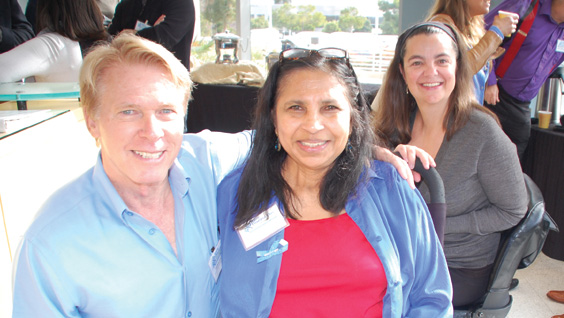“Treating Disease with Sugar” was the theme of this year’s Annual Rare Disease Day Symposium at Sanford-Burnham, a subject that drew scientists and patients together in an informal setting to share promising research on how sugar may be used to treat certain rare genetic disorders—and some not-so-rare disorders. While sugar may seem like an odd approach, for patients with mutations in the genes that attach sugar molecules to proteins (glycobiology), and sufferers of multiple sclerosis and cancer, the concept is proving both rational and effective.
The two-day event, held on February 27-28 at the Sanford Children’s Health Research Center in La Jolla, Calif., opened with welcomes from Kristiina Vuori, PhD, MD, president of Sanford-Burnham, and Denny T. Sanford, an honorary trustee of Sanford-Burnham.
Their welcome was followed by an extraordinary account of one woman’s journey of living with GNE myopathy. Her name is Jennifer Bartfeld, and her moving presentation can be viewed here:
The remainder of the first day held a series of presentations by researchers explaining the biochemical and functional basis for treating disease with sugar. You can view select presentations from February 27 here.
“The doctor is in” was the theme for the second day and gave patients a chance to meet with clinicians one on one to learn about the direction of research on their particular condition. A frequent theme was how to find and mobilize more scientists and resources that can advance the much needed treatments for these patients.
The original idea for “sugar treatment” came from Hudson Freeze, PhD, director of the Human Genetics Program at Sanford-Burnham. He proposed treating a young child with the rare disorder called N-Glycanase Disorder with mannose, the sugar lacking in these patients. The treatment helped alleviate the seizures and symptoms associated with the disease, and was the foundation for the current scientific and clinical exploration of sugar as a supplement for other glycosylation disorders, as well as immunological disease and cancer.
Also join the conversation online on Facebook and Twitter by using the hash tag #RareDiseaseDay2015.
